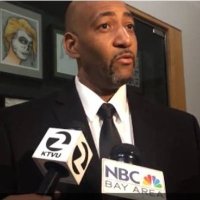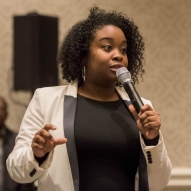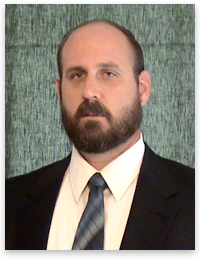If you live within driving distance of Orlando, Florida, or just happen to be in the area, I would like to invite you to attend FFF’s conference, “End the Drug War,” at the Florida A&M University law school (201 Beggs Avenue, Room 240, Orlando, FL 32801) on Wednesday, March 22, 2017, from 6:00 pm – 8:30 p.m. Admission price: FREE and open to the public. Our conference co-sponsors are the ACLU chapters at FAMU, Barry University, and the University of Central Florida.
A special significance of this particular conference is that it is the second Historically Black College or University (HBCU) at which we have held a conference on the drug war. The first one was at Morgan State University in Baltimore last year.
During the 27-year history of FFF, we have held many conference, lectures, seminars, and programs. Throughout that time, very few participants have been black. In fact, it’s a phenomenon that I have noticed about programs and activities throughout the libertarian movement generally ever since I discovered libertarianism some 40 years ago.
In the spring of 2015, in partnership with the Young Americans for Liberty, we held a conference on ending both the drug war and the war on terrorism at the University of Texas, which featured speakers Ron Paul, Radley Balko, and Glenn Greenwald. Admission was free, and it attracted around 750 people, about 99 percent of whom were white. During a Q&A session, a student stood up and asked: Why are there so few blacks in attendance at the conference?
It was an interesting and important question. After all, African-Americans have borne the disproportionate consequences of the war on drugs. If anyone should be interested in ending this horrific and tyrannical government program, it should be American blacks. (Of course, the drug war is not the only federal program that has adversely impacted blacks — the federal minimum wage law has caused a permanent unemployment rate of 30-40 percent among black teenagers.)
As the Drug Policy Alliance, a nationally prominent organization for ending the drug war, states:
The drug war has produced profoundly unequal outcomes across racial groups, manifested through racial discrimination by law enforcement and disproportionate drug war misery suffered by communities of color.
Although rates of drug use and selling are comparable across racial lines, people of color are far more likely to be stopped, searched, arrested, prosecuted, convicted and incarcerated for drug law violations than are whites.
The life-long penalties and exclusions that follow a drug conviction have created a permanent second-class status for millions of Americans, who may be prohibited from voting, being licensed, accessing public assistance and any number of other activities and opportunities. The drug war’s racist enforcement means that all of these exclusions fall more heavily on people and communities of color.
In an article entitled “The War on Drugs and the New Jim Crow,” law professor Michelle Alexander put it this way:
The uncomfortable truth, however, is that crime rates do not explain the sudden and dramatic mass incarceration of African Americans during the past 30 years. Crime rates have fluctuated over the last few decades—they are currently at historical lows — but imprisonment rates have consistently soared. Quintupled, in fact. And the vast majority of that increase is due to the War on Drugs. Drug offenses alone account for about two-thirds of the increase in the federal inmate population and more than half of the increase in the state prison population.
The drug war has been brutal — complete with SWAT teams, tanks, bazookas, grenade launchers, and sweeps of entire neighborhoods — but those who live in white communities have little clue to the devastation wrought. This war has been waged almost exclusively in poor communities of color, even though studies consistently show that people of all colors use and sell illegal drugs at remarkably similar rates. In fact, some studies indicate that white youth are significantly more likely to engage in illegal drug dealing than black youth. Any notion that drug use among African Americans is more severe or dangerous is belied by the data. White youth, for example, have about three times the number of drug-related visits to the emergency room as their African American counterparts.
That is not what you would guess, though, when entering our nation’s prisons and jails, overflowing as they are with black and brown drug offenders. In some states, African Americans comprise 80 to 90 percent of all drug offenders sent to prison.
Alexander, who is African-American, is the author of the excellent book The New Jim Crow: Mass Incarceration in the Age of Colorblindness, which I highly recommend.
The way I figure it is that African-Americans of all wealth and income levels could serve as a powerful catalyst to finally bring this deadly and destructive government program to an end.
After that student at the University of Texas asked that question, I thought to myself: We can focus on how to get African-Americans to our conferences or we can instead take our message to African-Americans. That’s when we thought about taking our anti-drug-war conference to historically black colleges and universities, a list of which can be found on the website of US News.
At our Orlando conference, we will have three great speakers who will share their perspectives on this horrible government program:
 Ken Williams is a former Boston-area homicide detective and a representative of LEAP, an organization of former law-enforcement officials who are dedicated to ending the drug war. Ken has appeared as a criminal-justice expert in print and television media, including NBC Peacock Productions “Black and Blue” with Tony Harris and the Nancy Grace Show on CNN/HLN.
Ken Williams is a former Boston-area homicide detective and a representative of LEAP, an organization of former law-enforcement officials who are dedicated to ending the drug war. Ken has appeared as a criminal-justice expert in print and television media, including NBC Peacock Productions “Black and Blue” with Tony Harris and the Nancy Grace Show on CNN/HLN.
 Kassandra Frederique, the New York policy manager for the Drug Policy Alliance. She works to build powerful coalitions in communities devastated by drug abuse and the war on drugs. Kassandra earned her master’s degree in social work at Columbia University and a B.S. in industrial labor relations at Cornell University.
Kassandra Frederique, the New York policy manager for the Drug Policy Alliance. She works to build powerful coalitions in communities devastated by drug abuse and the war on drugs. Kassandra earned her master’s degree in social work at Columbia University and a B.S. in industrial labor relations at Cornell University.
 Laurence Vance, longtime policy adviser for The Future of Freedom Foundation and author of the book The Drug War Is a War on Freedom, which will soon be available in ebook format through FFF. The author of 24 books and hundreds of articles, Laurence is one the libertarian movement’s most prominent exponents.
Laurence Vance, longtime policy adviser for The Future of Freedom Foundation and author of the book The Drug War Is a War on Freedom, which will soon be available in ebook format through FFF. The author of 24 books and hundreds of articles, Laurence is one the libertarian movement’s most prominent exponents.
I hope you can join us at the conference! If not, we are hoping to videotape it so we can share it with others on the Internet.



